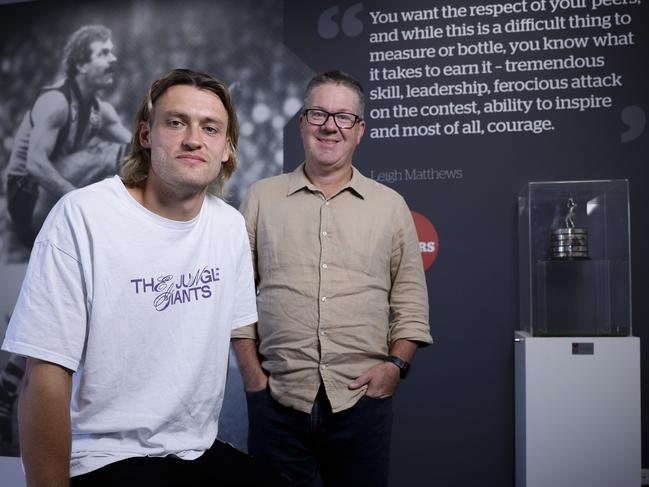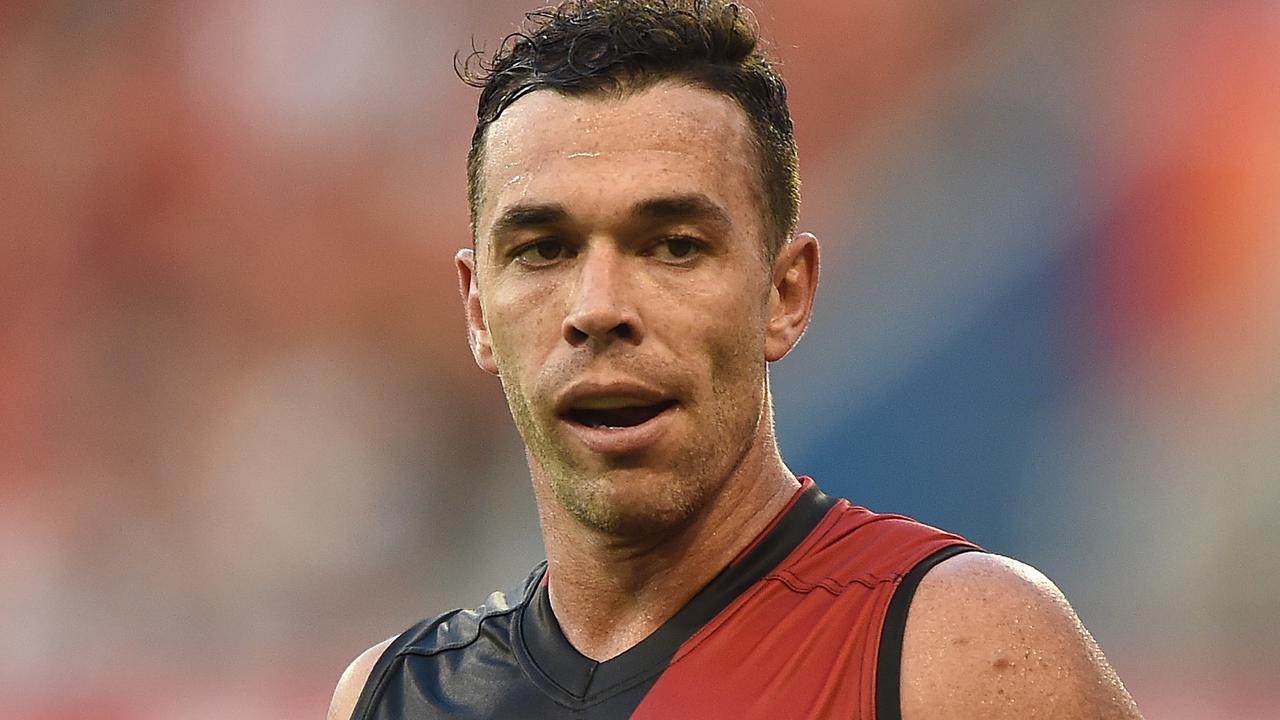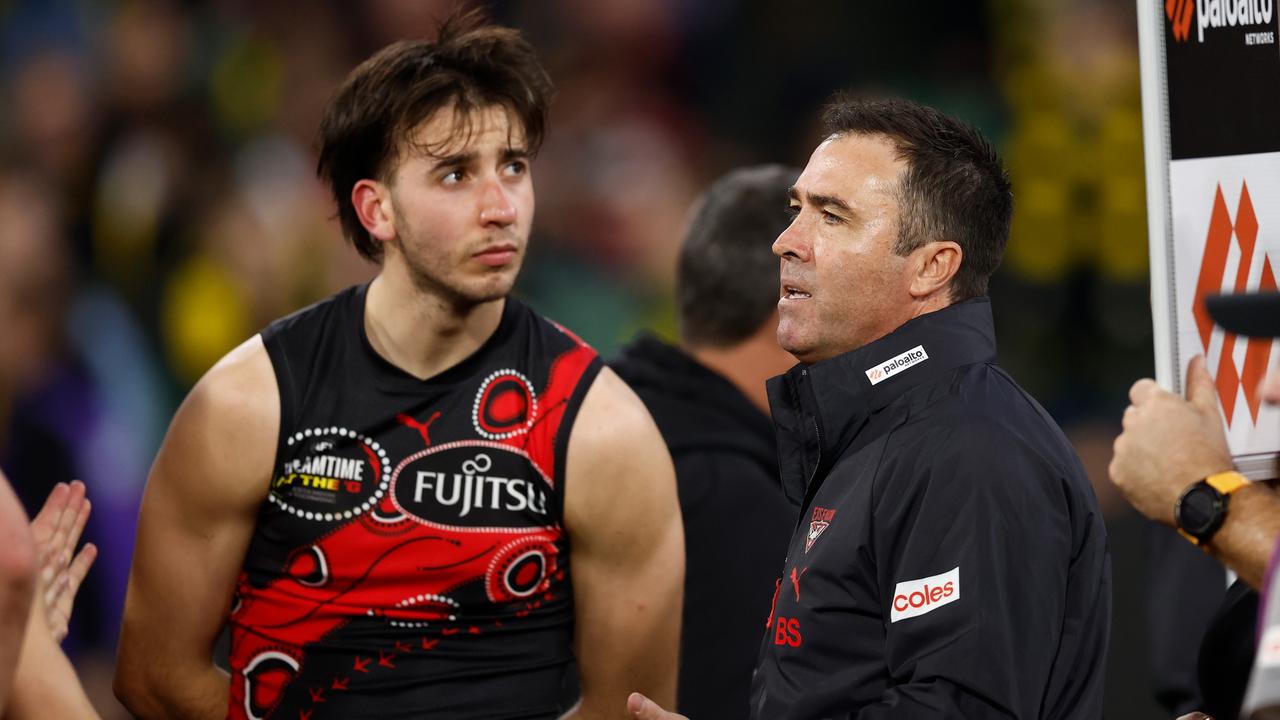AFLPA Insights and Impact Report reveals mental health, social media use major concern for players
Mental health and concerns about social media have emerged as two of the biggest issues for AFL and AFLW players in an eye-opening new report.
AFL
Don't miss out on the headlines from AFL. Followed categories will be added to My News.
More AFL players are seeking mental health help than ever before, with social media pinpointed as a key stressor to both men’s and women’s players.
A total of 779 AFL and AFLW players accessed the mental health support avenues available via the AFL Players’ Association in 2024 — up from 662, a jump of 17 per cent — for a total of 8,676 consultations, which was up 37 per cent on the previous year.
This includes sessions that are available to past players — which also rose, particularly with AFLW players — and partners of current and past players.
According to the AFLPA Insights and Impact Report — which canvasses current and former players on the biggest trends and issues facing players — current players are utilising mental health services more than any other group, with 23 per cent of men’s players and 45 per cent of AFLW players harnessing the services available which includes a national network of over 600 psychologists.

Premiership player and former Eagle Will Schofield said he believed there had been a “significant cultural shift” in how football clubs and players deal with mental health.
“The way I rationalise mental health is in two parts: there’s the performance aspect
as a professional athlete and then there’s the human side – the stuff that exists away
from the field and affects all of us,” he said.
“In my football career, I witnessed a significant cultural shift in how clubs and the
wider football community understood and supported mental health.
“We moved from a system where wellbeing was barely spoken about to one where there’s now real openness, more resources, and a willingness to say, “I’m not doing okay”.
“That kind of vulnerability from players is powerful. But the reality is, for many, the hardest part isn’t while you’re playing – it’s when the game stops.
“I don’t buy into the idea that the game is tougher now than when I entered the system. Sure, there might be more noise externally – more cameras, more commentary, more public scrutiny – but that’s part of playing elite sport. What has changed is the willingness of clubs, staff, and players to acknowledge the toll that pressure takes and do something about it. That’s real progress.”

Social media was identified as a key source of anxiety and stress, with players reporting they were grappling with the balance of a desire to be active online with constant scrutiny and “unfiltered public feedback”.
Players said financial stress related to “societal and cultural pressures around spending”.
A number of players have stepped away from the game this season in a bid to deal with personal issues, including Clayton Oliver — who missed the Demons’ win over West Coast earlier this month as he put his mental and physical health at the forefront — and Western Bulldogs forward Jamarra Ugle-Hagan.
An alarming 75 per cent of men’s players and 45 per cent of women’s players surveyed have identified mental health as a key concern, with one-third of men’s players also highlighting racism as a societal worry.

Gambling was identified by 30 per cent of men’s players as a concern, while 29 per cent of players determined illicit drug use.
Almost 70 per cent of AFLW players highlighted gender equity as a societal concern to them.
Concerns were also raised by AFLW players about the presence of doctors at training sessions, with delegates from nine clubs reporting that a doctor is not “always” present for contact training sessions, which is mandated in the collective bargaining agreement.
Some players also highlighted situations where physios were conducting concussion assessments after head knocks at training, which the player union said falls short of best-practice concussion protocols.
“These scenarios pose an unacceptable risk to player safety and highlight the urgent need for consistent, reliable access to qualified medical professionals,” the report states.
“Particularly as the industry works to strengthen concussion management standards.”
Originally published as AFLPA Insights and Impact Report reveals mental health, social media use major concern for players




